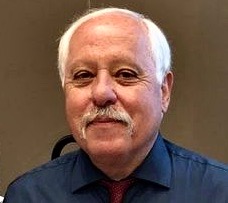
As chair of the North Pacific District of the Public Relations Society of America (NPD PRSA), I recently attended the PRSA International Conference in Detroit, Michigan. The event was held in the Detroit Renaissance Center, which serves as headquarters for General Motors and also includes a huge conference facility and hotel, the Detroit Marriott. The hotel, which soars 73 stories above the Detroit River (above, top), is a stunning presence on the city's skyline.
A notorious multi-tasker, I'm also the faculty advisor for the University of Oregon chapter of the Public Relations Student Society of America, which has its annual national conference in conjunction with the PRSA International Conference. Here's a group shot of me and this year's UO PRSSA executive team (bottom) at the PRSA/PRSSA Social in front of a classic '55 Chevy.
One of the keynote speakers at the conference was Mitch Albom, sports columnist for the Detroit Free Press. For those of you who don't follow the wide, wide world of sports, Mitch (gotta like that name, no?) is one of the premier sports journalists in American today. At the NPD PRSA District Conference in Portland last May, I came up lucky in a raffle drawing and won his book "Tuesdays with Morrie," Albom's chronicle of time spent with a beloved but dying professor.
I saved the book for the plane ride from Eugene to Detroit and I must say I was profoundly affected by the revelations and learnings I gleaned. One of the key themes in Albom's memoir is how we seemingly waste our time on things that really have little or no significance in our lives:
"I flew to London...covering Wimbledon, the world's premier tennis competition and one of the few events I go to where the crowd never boos and no one is drunk in the parking lot. Outside the gate was a newsstand that sold a half dozen colorful British tabloids featuring photos of topless women, paparazzi pictures of the royal family, horoscopes, sports, lottery contests and a wee bit of actual news."
"People scooped up these tabloids, devoured their gossip, and on previous trips to England, I had always done the same. But now, for some reason, I found myself thinking about Morrie whenever I read anything silly or mindless. I kept picturing him there, squeezing out every moment with his loved ones, while I spent so many hours on things that meant absolutely nothing to me personally: movie stars, supermodels, the latest noise out of...Madonna."
"In a strange way, I envied the quality of Morrie's time even as I lamented its diminishing supply. Why did we bother with all the distractions we did. Back home, the O.J. Simpson trial was in full swing, and there were people who surrendered their entire lunch hours watching it. They didn't know O.J. Simpson. They didn't know anyone involved in the case. Yet they gave up days and weeks of their lives, addicted to someone else's drama."
"I remember what Morrie said during our visit: 'The culture we have does not make us feel good about ourselves. And you have to be strong enough to say if the culture doesn't work, don't buy it.'"
"I thought of something else Morrie had told me: 'So many people walk around...half-asleep, even when they're busy doing things they think are important. This is because they are chasing the wrong things. The way you get meaning into your life is to devote yourself to loving others, devote yourself to your community around you, and devote yourself to creating something that gives you purpose and meaning.'"
"I knew he was right."










